2019 chain game player demand survey report: male players account for 78.8%, 66.4% of the respondents understand the difference between chain games and traditional games
Researcher: Kong Yafei Ren Yifei Yang Yihui
Report Source: DegameLabs
DegameLabs Chain Game Lab, together with Zhejiang University Blockchain Association, TokenPocket, and MEET.ONE, jointly released a questionnaire on "Game Player Demand Survey". This survey aims to understand the current state of the blockchain game market and focus on the characteristics of chain game players in order to create goals Blockchain games preferred by users provide reference for promoting the development of the chain game industry.
The "Research Report on the Demand of Chain Game Players in 2019" is divided into four parts. The first section is an overview of the basic situation of the sample, the second section is the comparison between chain game players and traditional game players, and the third section focuses on the chain game cognition of chain game players. And preferences, the fourth part is the player's game experience and game behavior analysis.
- The interpretation of gimmicks and mining challenges caused by the halving of Godfish and Maya | Chain Node AMA
- Blockchain + Notary Office Data Deposit Platform Practice: Taking the Pudong Notary Office Data Deposit Platform as an Example
- Gemini Exchange sets up insurance company to provide $ 200 million in insurance for custody services
I. Basic sample status
The basic situation of players participating in the survey is as follows:
1) From the perspective of gender composition, male players account for 78.8% and female players account for 21.2%. The game is also the main stadium for men.
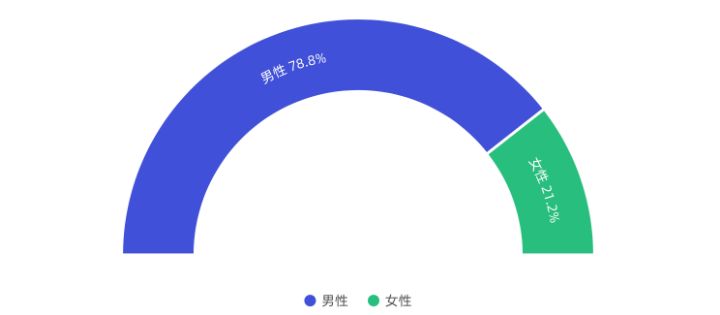
2) From the perspective of age distribution, the post-90s ratio is close to 50% , the post-80s ratio is close to 30%, and the post-00s ratio is 7% to announce that the new generation is about to enter.
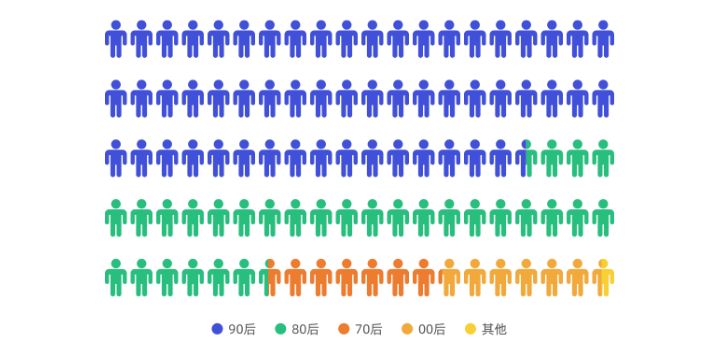
3) In terms of geographical distribution, players from 16 provinces across the country participated in the survey. Beijing, Hangzhou, and Shanghai are among the top 3 cities.
4) Judging from the frequency of playing games, 48.6% of the players play games more than 4 times a week, 18.6% of players play 3-4 times a week, and only 7.3% of players rarely play games.
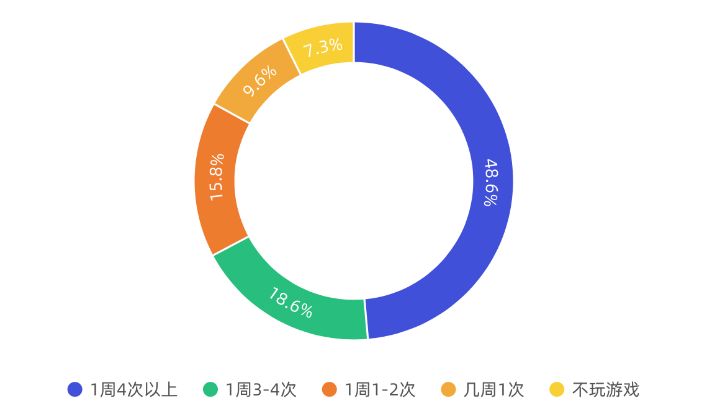
5) Judging from the knowledge of blockchain technology, 42% of players said they knew it , 54% of them said they knew a little, and only 4% of players did not understand it at all.
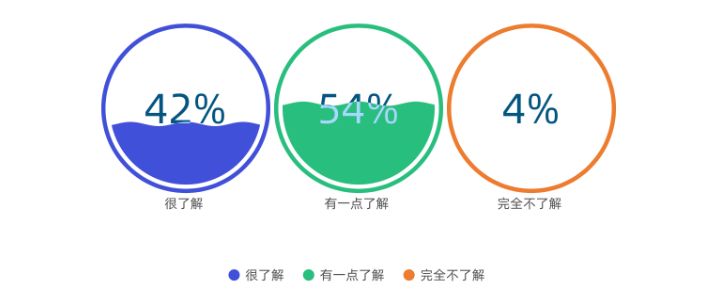
6) Whether there have been transactions in digital currency, 78% of players have participated in digital currency transactions, 17.5% of players have not traded, but 4.5% of players said they want to participate but do not know how to participate, and the popularity and education of users Need to continue.
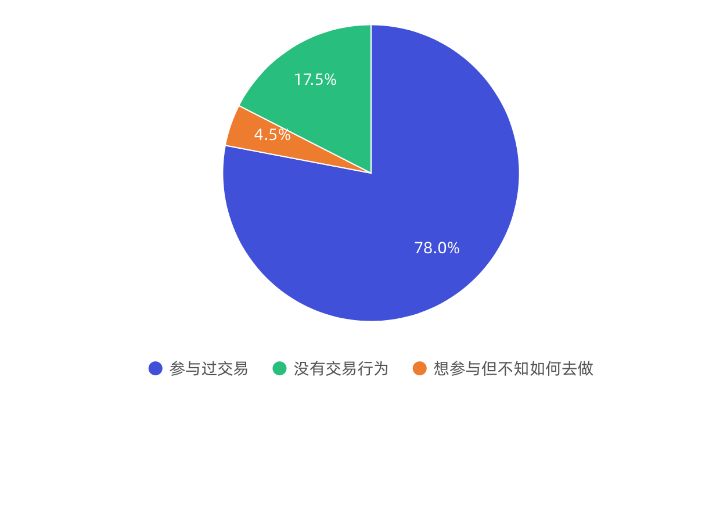
Chain game players & traditional gamers
In conjunction with the purpose of this survey, this survey focuses on the differences between chain game players and traditional game players. In order to clarify the difference between the two types of players, we define chain game players as: Having played blockchain games and had digital currency transactions Behavioral players, traditional gamers are defined as: players who have not played blockchain games and have no digital currency transaction behavior.
Game frequency
Chain game players are more enthusiastic about playing games , playing games more frequently than traditional game players.
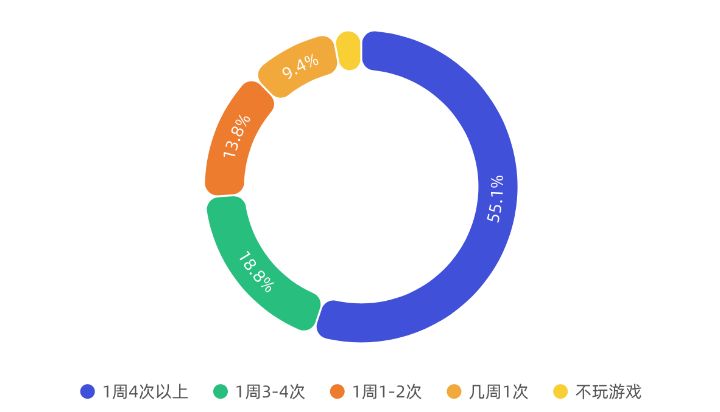
Chain Tournament Players
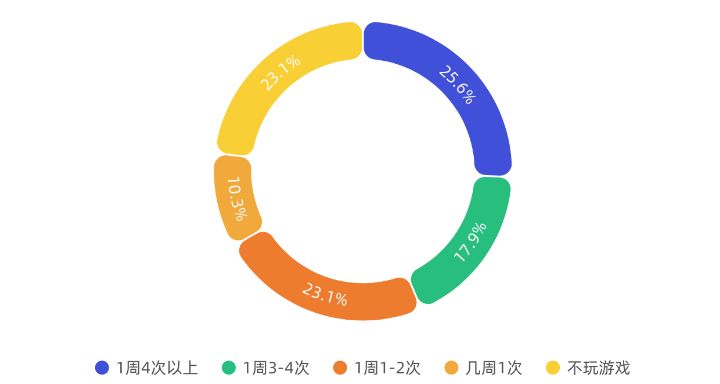
Traditional gamer
Game type
1) The most popular types of games for chain game players are strategy games. Traditional game players like various types of games, mainly focusing on role-playing, action and casual games.
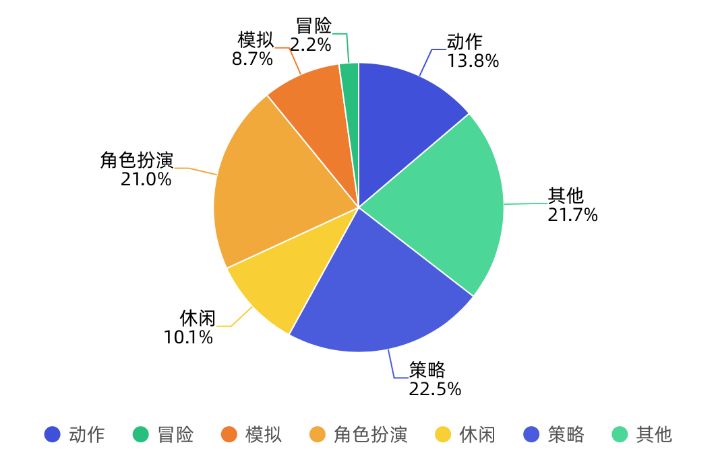
Chain Tournament Players
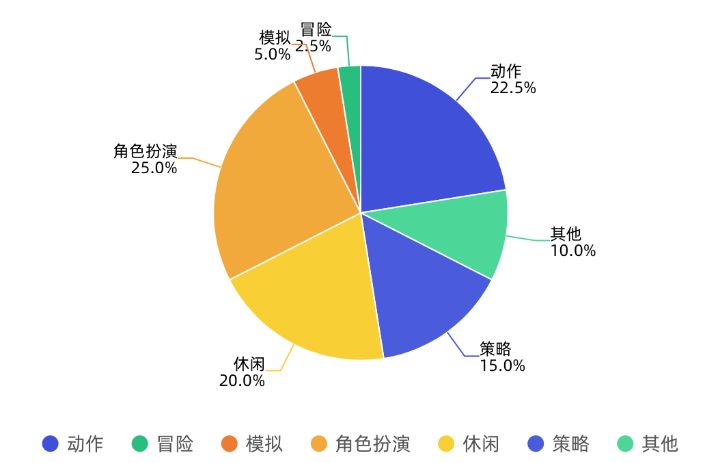
Traditional gamer
2) The most common types of games played by chain game players and traditional gamers are mobile games, with no obvious difference.
Game style
In terms of game style selection, there are no obvious differences between chain game players and traditional game players. The top three favorite styles are Chinese style, photorealistic and cartoon .
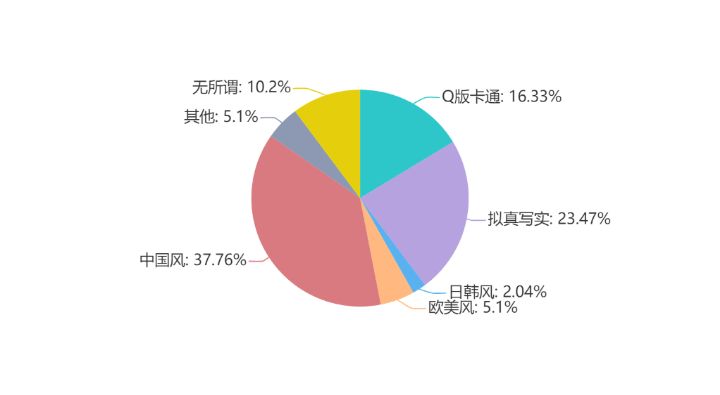
4. The joy of playing games
Chain game players mainly enjoy the fun of defeating their opponents and making money . Traditional gamers enjoy their games mainly by defeating their opponents, exploring the unknown, and thinking and brainstorming . Compared with traditional game players, chain game players are more interested in making money and uncertainty, and less interested in successful puzzle solving and team interaction.
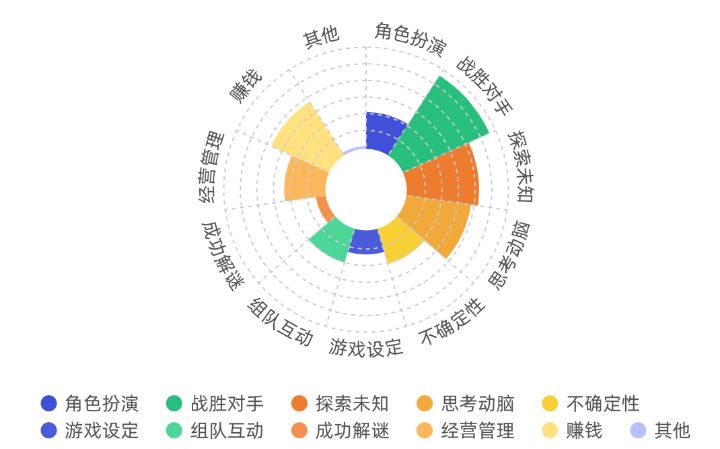
Chain Tournament Players
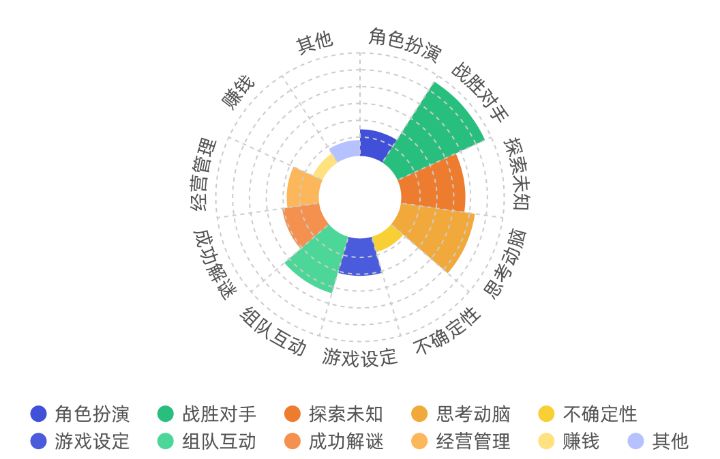
Non-chain game players
5. Chain Tour Cognition
66.4% of the respondents understand the difference between chain games and traditional games. Among them, the proportion of players who recognize the value of chain games is 70.8%, and 29.2% of players understand the difference, but do not recognize the value of chain games;
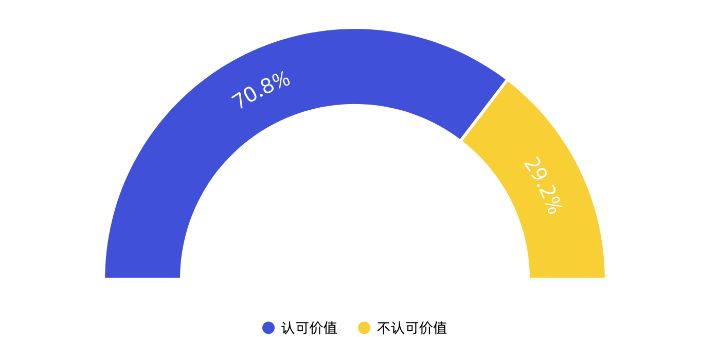
6. Are you willing to try chain games
74% of players expressed their willingness to try blockchain games , 22.6% of players are willing to try blockchain games depends on the content of the game , only 3.4% of players are unwilling to try blockchain games. Among them, 43.6% of traditional game players' choices are more affected by the game itself.
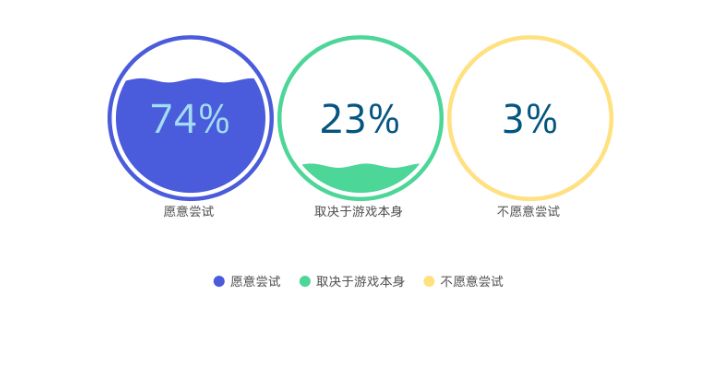
Link-related
Chain travel planning
The players most concerned about chain games are the fun game content (37.9%), the circulation of items (19.2%), and the game can make money (18.9%) ; traditional game players have a higher degree of attention to the game content itself, and chain game players Prefer the money-making effect of the game.
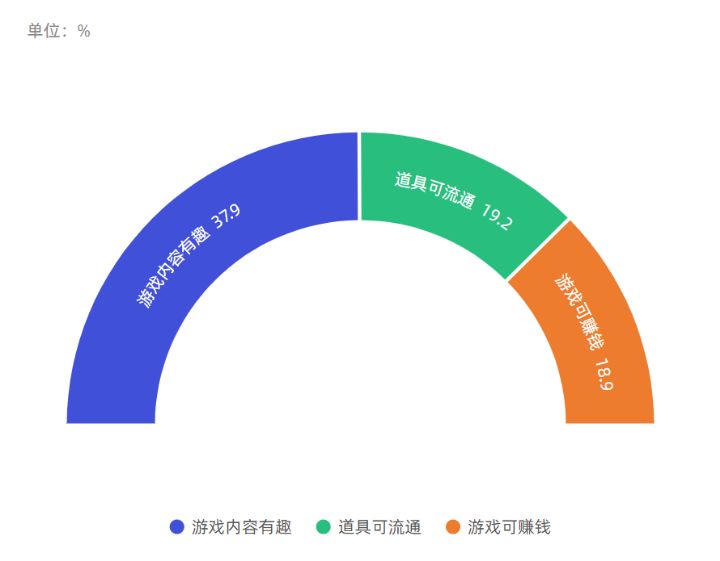
2. Chain travel preferences
Regarding the characteristics of chain games, chain game players are most concerned about the first three items: item circulation, item asset appreciation, and game earning effects.
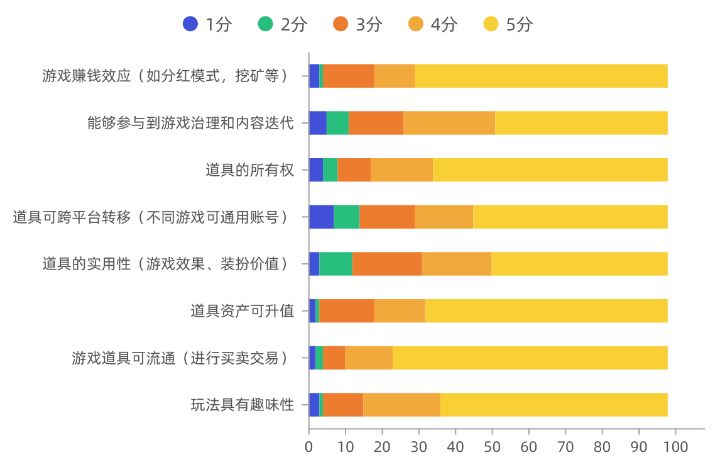
Chain game player preference importance score
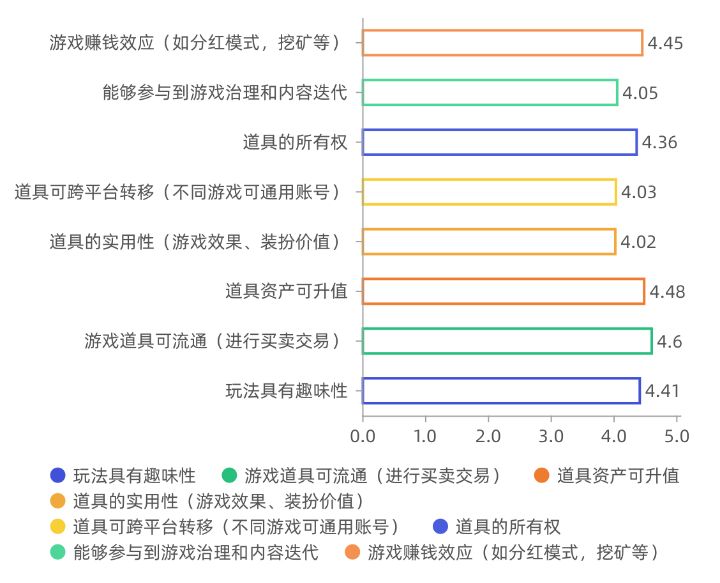
Chain game player preference average score
3. How to obtain chain games
Blockchain wallet (blockchain wallet is a software program that helps users to keep their private keys; usually it is necessary to interact with the blockchain network through the blockchain wallet ) is an important way for users to understand blockchain games, followed by App Store, etc.
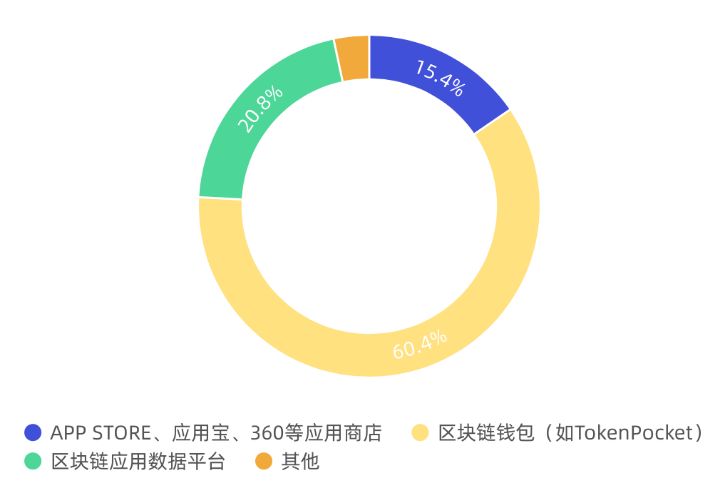
4. Prop assets
Chain game players are very focused on prop asset chaining (asset chaining generally refers to the use of smart contracts to record that the prop assets issued in the game have achieved permanent ownership of the player) and will specifically check whether the game assets are on the chain; only 2.9% Chain game players don't care about the assets on the chain.
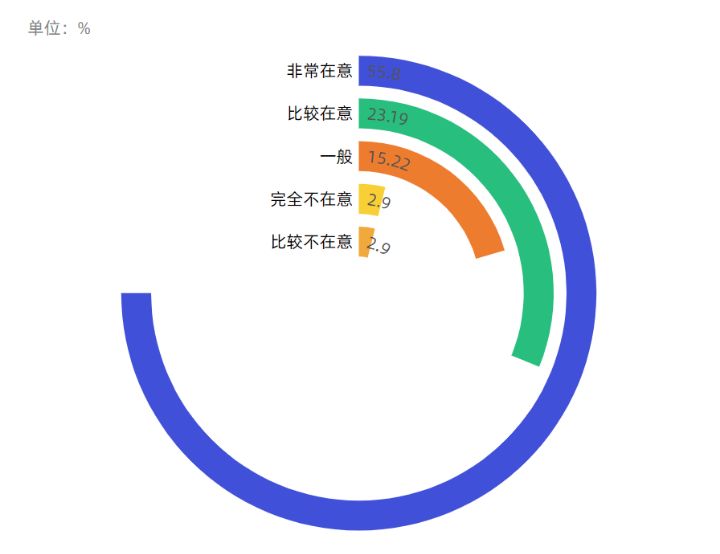
5. Obstacles
Players believe that the main obstacles to playing chain games are : not interested in game content and complex operations, complicated operations including unfamiliar with wallets, private keys and other operations. It is worth noting that 9.18% of players said that the obstructive factor was that they did not know where to play. Chain Tour.
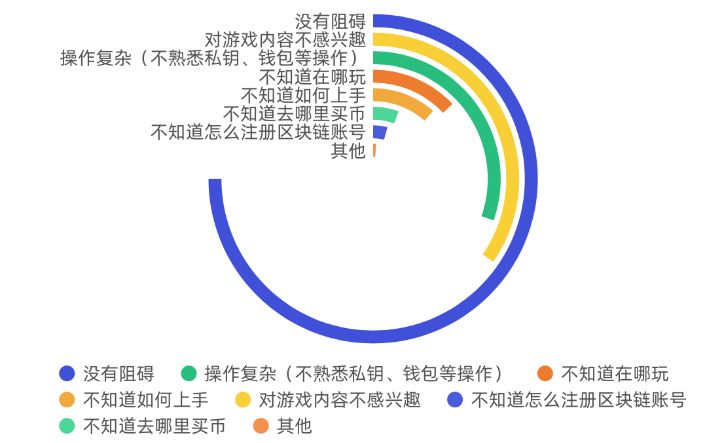
Special Note:
The above are the first three parts of the "Research on the Demand of Chain Game Players in 2019". The questionnaire collection tool is a questionnaire star, and the above conclusions are from the "Player Demand Survey" data.
We will continue to update Blocking; if you have any questions or suggestions, please contact us!
Was this article helpful?
93 out of 132 found this helpful
Related articles
- Resubmitted to the U.S. Congress three years later, the bill wants to exempt small bitcoin transactions from taxes
- How did China's first blockchain invoice come into being?
- Opinion | Underrated Ethereum: Victory is almost doomed, the only difference is now or in the future
- In 2019, currency-related crimes caused US $ 6 billion in losses, and US $ 1 billion in BTC for the dark web
- Ethereum becomes the central bank's top choice? RBA begins testing central bank digital currency on Ethereum network
- Over 600 million U.S. dollars invested in a year, 71% from institutions, Grayscale annual report reveals Bitcoin trends
- Babbitt Column | Cutting-edge regulatory technology for capital markets






